I know the answer here might be obvious, but I thought it would be interesting to take a bigger picture look at the practice of airlines overselling flights, often leading to overbooking situations. Why do airlines do it, and is it ethical?
In this post:
Why airlines sell more tickets than seats
It’s a widely accepted practice in the airline industry that airlines will sell more tickets for a given flight than there are seats. Maybe you’ve been bumped off a flight at some point, or at a minimum, maybe you’ve heard an airline solicit volunteers at the gate, to take another flight in exchange for compensation.
Just to clarify some terminology:
- A flight is oversold when an airline sells more tickets than there are seats on a plane
- A flight is overbooked when more people actually show up at the airport for a flight than there are seats
In other words, overselling can (but doesn’t have to) lead to overbooking. In situations where a flight is overbooked, airlines will generally try to solicit volunteers to take another flight in exchange for compensation. This is known as voluntary denied boarding. If there aren’t enough volunteers, the airline may have to force people to be bumped off the flight. This is known as involuntary denied boarding.
So, what causes airline flights to be overbooked? There are a variety of potential factors, which I figured I’d cover below.
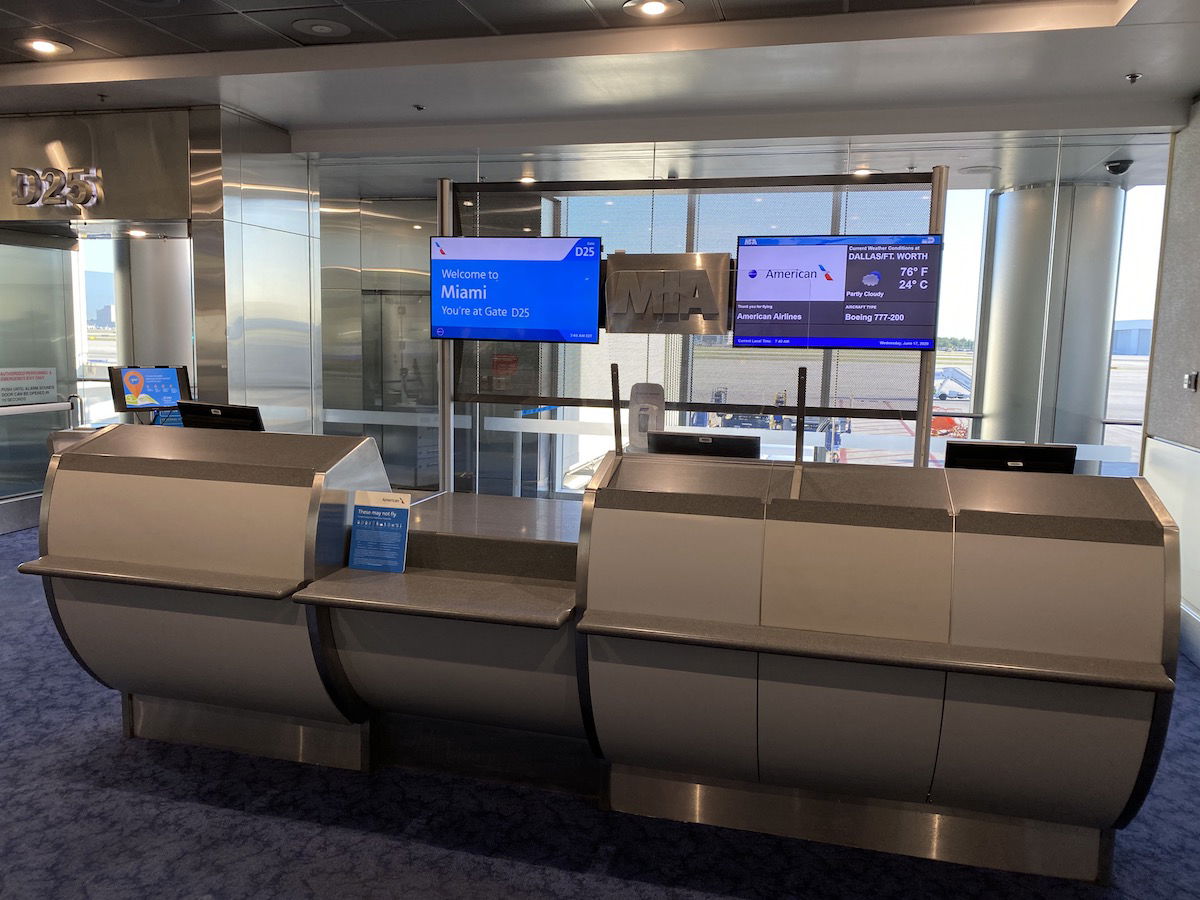
Airline seats are perishable goods
Airline seats are perishable goods, and understandably airlines want as many seats as possible to be filled. The second the airplane door closes, the airline loses the opportunity to monetize seats.
Airline revenue and inventory management is incredibly complex, and airlines use all kinds of methods to both price discriminate based on different consumer segments, and fill seats. Airlines want as many seats as possible filled, with people paying as much as they’re willing to.
Airlines have a ton of data about historical no show rates, last minute cancelations, etc., and they use that to oversell flights in a (mostly) rational way. If a flight has 160 seats and an airline finds that on average four people don’t show up (I’m making up that number — this differs with every flight based on a variety of factors), the airline might oversell by that much.
For that matter, airlines have eliminated change fees on many kinds of fares, so we’re seeing a lot more people making flight changes than in the past. If a flight is sold out two weeks in advance, an airline might realize that on average 10% of ticket holders cancel within a week of departure, and oversell accordingly.
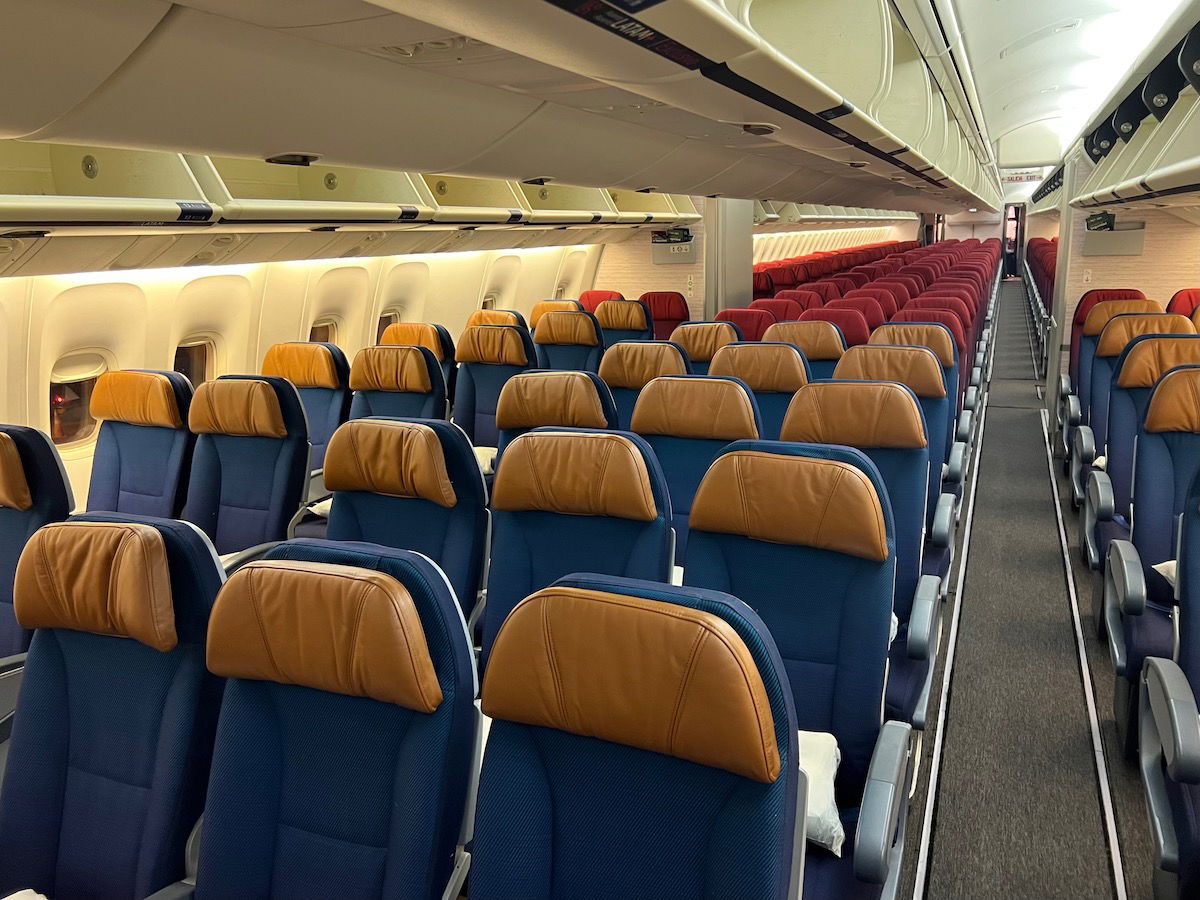
Airline passengers no show for a variety of reasons
As mentioned above, airlines have good historical data on this kind of stuff, and there are all kinds of reasons that confirmed airlines passengers may not make it to a flight:
- With some airlines eliminating change fees on most fare types, many people book speculative tickets, and only cancel last minute
- Even among those who intend to travel, they may run late to the airport, the check-in or security line may be long, etc.
- Many passengers are on connecting itineraries, and their inbound flight could be delayed, meaning they miss their connecting flight
- For arriving international passengers with connections, they could get stuck in customs and immigration, waiting for their bag, etc.
- Some passengers may show up but not have the travel documents required for their destination, and therefore can’t board
On some flights every single passenger shows up, while I’ve been on some flights that were oversold, but ended up with dozens of empty seats. It can go either way.
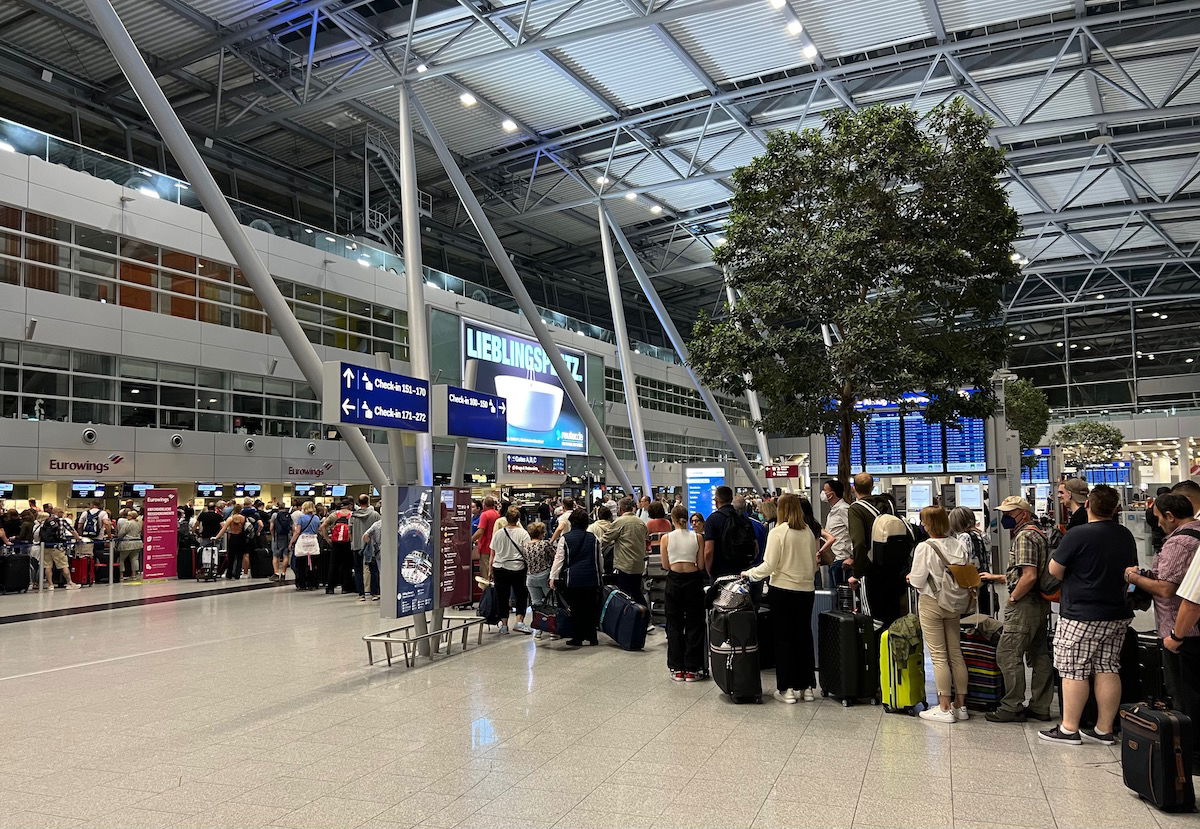
Airline operations are complicated
There are plenty of situations where a flight might be overbooked, even though the airline didn’t intend to oversell the flight. How can that happen?
- Airlines have different kinds of planes, and even the same types of planes may have different seating configurations; all kinds of operational issues could lead to a last minute aircraft swap
- It could be that there are pilots or flight attendants who need to deadhead on a flight, in order to work another flight; they can be booked on at the last minute, and are considered “must rides,” since another flight could be canceled if they don’t get on (and some pilots may even clear upgrades ahead of elite members)
- Weather factors can cause flights to be weight restricted, meaning an airline can’t fill all seats; this could be due to a storm, due to hot temperatures, or even due to cargo sometimes being more lucrative than passengers
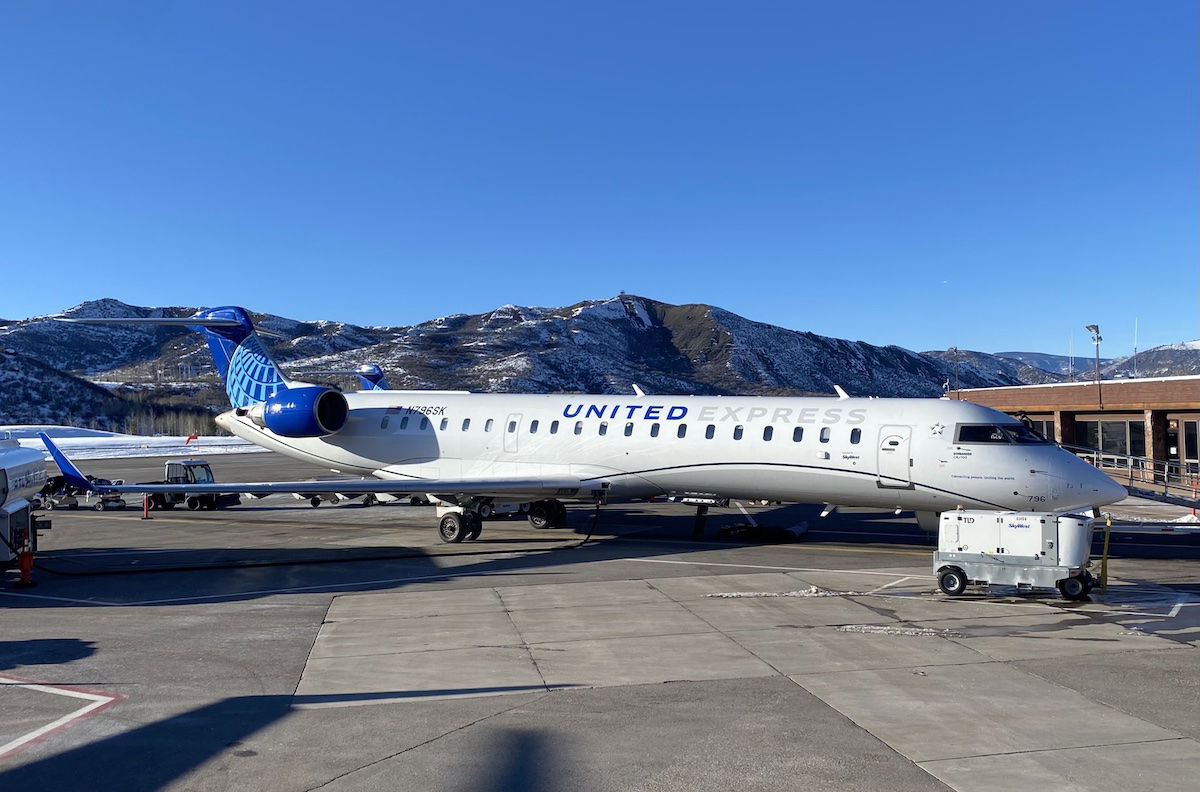
Sometimes a specific cabin is oversold
In some situations a flight as such might not be oversold, but rather a specific cabin may be. The most common situation is that economy class is oversold, while there are lots of empty seats in first and business class (this is rare within the United States, given that all elite members are typically eligible for complimentary upgrades).
In some cases passengers may not be bumped from a flight, but rather will be operationally upgraded to a higher cabin (there’s a pecking order for this, and it’s not based on how you dress, contrary to some reports). This is especially common on Gulf carriers, where economy may be oversold by dozens of seats, while business class is wide open.
The logic is that some revenue is better than no revenue — sure, airlines would rather sell premium seats at high fares, but at the end of the day someone paying for an economy ticket and flying in business class is above the marginal cost of carrying that passenger, assuming the seat would have been empty.
Some might wonder why airlines don’t just lower business class fares in those situations. Welcome to the wonderful complexities of revenue management, and how airlines don’t want to cannibalize their own premium demand.
In other words, if the normal price for a roundtrip business class ticket is $10,000, and you sell tickets last minute for a fraction of that, business travelers will catch on and start rebooking at the last minute. There’s the potential for a lot of lost revenue that way.
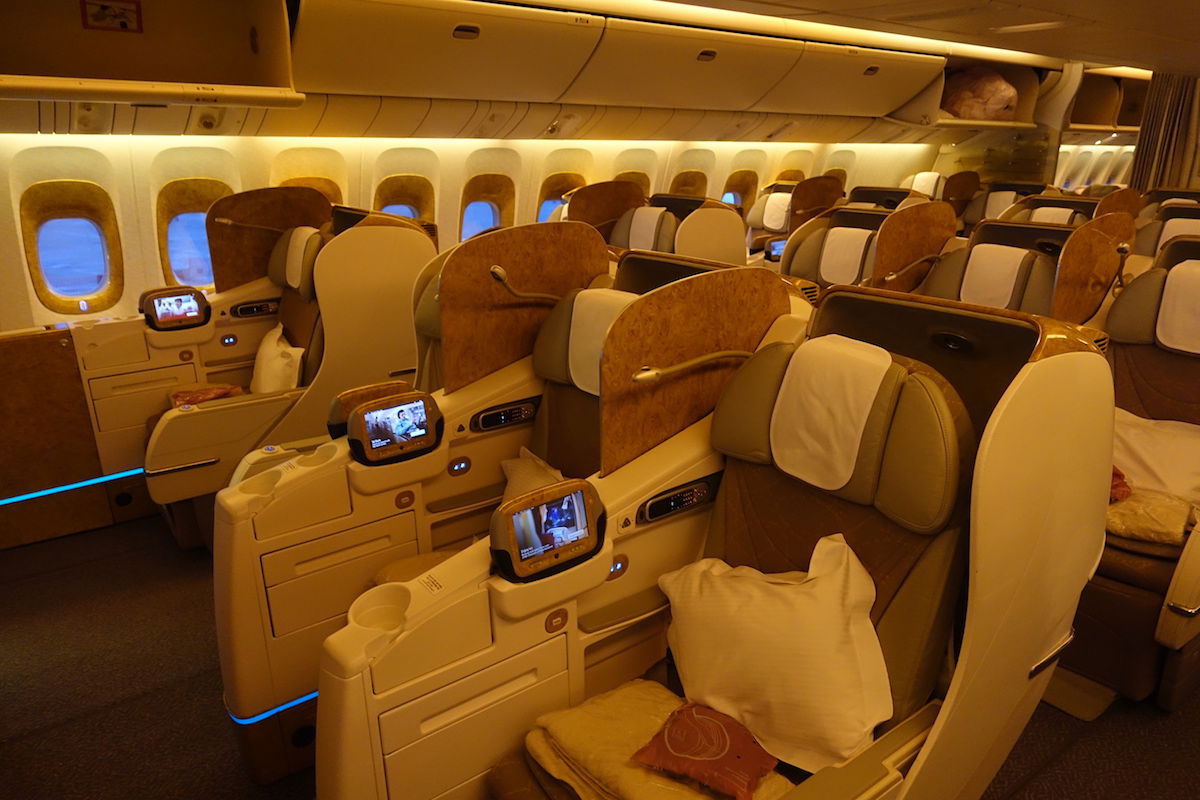
Bumping may not be expensive for airlines
Even in instances where a flight does end up being overbooked and volunteers are needed, keep in mind that it’s not necessarily going to be costly for the airline. Typically an airline will offer a volunteer a travel credit, which can be used on that airline.
The actual cost of that to the airline is next to nothing, assuming the flight they end up booking isn’t full. In many ways this gives airlines an incentive to oversell. An airline may be happy selling a last minute ticket to someone for $600 in cash, and then in turn giving another passenger a $600 voucher to take another flight.
Assuming an airline doesn’t involuntarily deny boarding to anyone, this is a win-win.
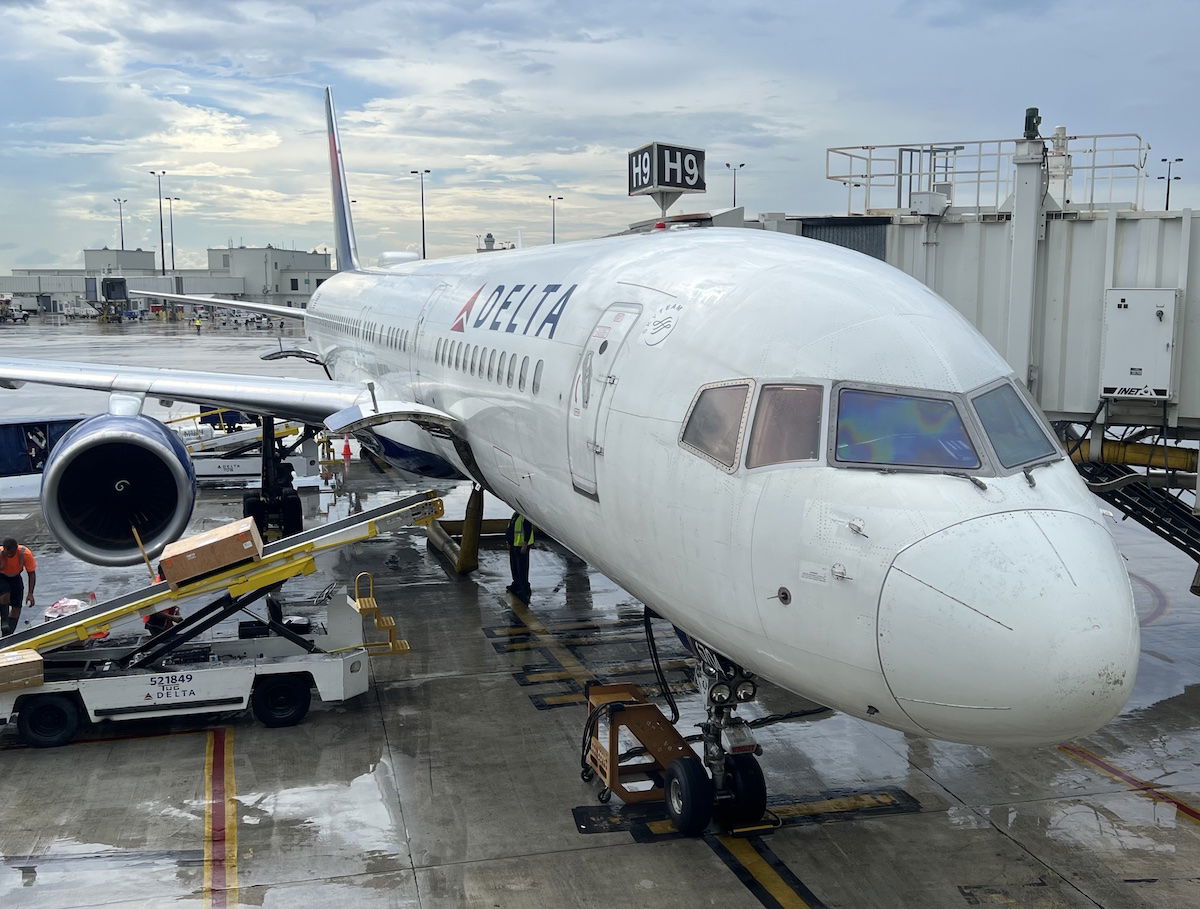
Is it ethical for airlines to oversell flights?
I often see people make the argument that airlines shouldn’t be allowed to oversell flights. That’s a fair argument, since it seems kind of deceptive to sell a product you may not have available. Legally airlines cover themselves with this, since airline contracts of carriage are highly one-sided.
Is it ethical for airlines to oversell flights, though? Here’s my take on that:
- I think there’s absolutely nothing wrong with overselling if you only have to voluntarily deny people boarding; after all, when it’s voluntary, it’s a win-win
- It’s a much bigger issue if it’s an involuntary denied boarding, but in fairness, that’s an area where airlines have improved considerably since the David Dao incident, as they’re much more sensitive to that now
- If I made the rules, I think airlines shouldn’t be allowed to involuntarily deny boarding to passengers as a result of overbooking; I would make an exception for situations where there are operational issues (admittedly that becomes a slippery slope)
- At the end of the day airlines should have to do whatever it takes to get volunteers, and that’s an area where we’ve seen many airlines step up; that’s why we’ve heard stories of airlines offering some $10K bumps to people (admittedly that’s really rare, which is why it makes headlines)
Bottom line
Overselling flights is a commonly accepted practice in the airline industry. While airlines have good data and get things right most of the time, this does sometimes lead to overbooking situations, where some people need to be removed from flights.
Airlines are always supposed to solicit volunteers first, before involuntarily denying boarding to people. That’s something airlines have gotten much better about since the David Dao and United Airlines incident.
What do you make of airlines overselling flights? Should it be allowed?





My aunt used to work for AA (retired around 1990), but one of her jobs there was to review flight lists and see if Bob Smith booked a seat on four flights from Boston to NYC for his Monday meeting, and then determine that they could sell an extra ticket for each of those flights knowing that Bob was only going to be on one of them. For business travelers this was common practice to...
My aunt used to work for AA (retired around 1990), but one of her jobs there was to review flight lists and see if Bob Smith booked a seat on four flights from Boston to NYC for his Monday meeting, and then determine that they could sell an extra ticket for each of those flights knowing that Bob was only going to be on one of them. For business travelers this was common practice to book a number of flights and then cancel whatever they didn't use, but the airlines needed to make revenue for those flights that the business person cancelled their ticket.
In Asian countries, overlooking flights is illegal due to the very strong customer respect laws. Hence Dr Chong's confusion.
Jess, it was Dr. Dao, and he’s a Vietnamese American (hero). We’ve gone over this before…
People take lower fares for granted and curse overbooking.
It's those oversold that subsidize your lower fares.
The greed here are the passengers who wants it both ways.
While it would never be perfect, airlines are getting much better.
I feel in the last 10 years, airlines have asked for a much fewer volunteers.
Corporate shill, says what?
After seeing the inside from a pilots perspective i think flights are MUCH more often overbooked than oversold. It’s not that they purposely sell too many seats, it’s that things change. Maybe they have to deadhead crews unexpectedly, maybe there were flight cancellations and Elite members have been put on full flights, maybe there are equipment issues with the airplane that required the flight to depart with empty seats. That’s frequently the reason
‘It’s a widely accepted practice in the airline industry that airlines will sell more tickets for a given flight than there are seats.’
Nope.
It’s a widely ACKNOWLEDGED practice in the airline industry that airlines selL…..
Nobody accepts it. It’s just a fact.
Exactly. And we should push back more effectively by demanding our government better regulate these bad practices.
While change fees are gone, they remain in ticket pricing of changed booking. If I bought a ticket weeks ago, my ticket may have the lowest fare but my changed date may I longer have the lowest fare in that category.On arecent flight I
wanted to come home three days early but UA wanted about -$3,000 extra even though the original ticket cost $5,600 and there were numerous seats availabe
Lucky,
The reason is simple.
For the same reasons why bloggers exaggerate (or shill credit cards) when they write.
To maximize profits / readership / ad revenues etc.
“SQ Hidden lounge in CGK”!
WOW!
BA once shared the fascinating number that a seat on one of their intercontinental flights out of Heathrow is confirmed between 8-10 times before departure.
Of course, not all of that is due to overselling, there are a myriad of factors at play. But (in contrast to what Lucky is telling you), passenger aviation is mostly a logistics business.
Ah, so, ignore reality; humans are just cargo; no rights, responsibilities, obligations, differences in class of service, schedule, routing, or whatever. Just a Point A to Point B. That’s all… /s
It might help the airlines if they published some high level figures.
E.g. "On *average* we oversell flights by 2%, but we deny boarding on less than 0.05% of flights."
So long as compensation for denied boarding is generous, and a voluntary mechanism assures this, I don't see why there is any cause for complaint - it achieves a more efficient use of resources.
Airlines have invested considerably in algos that enable them to overbook flights without in the end needing to have volunteers or involuntary denied boardings. Anyone over the past few years that has volunteered thinking they'd end up with a voucher/credit or free flight has in the end told to board-and finding no space around their seat for their carryon. Typically overselling is seen on popular flights at popular times-like Hawaii during the holidays.
Algorithms are fancy ways to describe ‘policies’… it’s all a business decision, and these for-profit companies are gaming their own passengers. Perhaps, we shouldn’t allow such predatory practices anymore… Congress, DOT, etc. can stop this any time they want. Oh, wait, A4A just delivered a million dollars to the committee members who decide this. Huh.
@George Romey
Thank you for that advice.
So if offering, one should do so on a fill-or-kill basis, rather than giving the airline an option to execute.
Because we, especially in the US, allow lobbyists who legally bribe our elected representatives to vote against the peoples’ best interests, and the result is often that workers and consumers get screwed, while the wealthy and influential get rewarded. That’s why airlines get away with this.
The username with 1990, gets it! Plain old capitalist greed.
Oh, and we, the people, can still demand better, peacefully and effectively, but we’re often distracted by corporate-backed propaganda, which deflates our motivation to seek better outcomes and guardrails to protect us against such bad practices. So, ignore the naysayers, demand better. We deserve actual air passenger rights legislation in the US, akin to EU/UK261, Canada’s APPR.
You're overlooking a very big reason why these oversales happen at peak periods when airlines often tend not to overbook their flights as no-shows tend to be much lower when families are traveling. That reason is INAD/DEPU passengers. If you land somewhere where 10 passengers are denied entry and ordered returned, that is 10 passengers on your return flight that you need to bump to accomodate those. This can create a snowball effect over the...
You're overlooking a very big reason why these oversales happen at peak periods when airlines often tend not to overbook their flights as no-shows tend to be much lower when families are traveling. That reason is INAD/DEPU passengers. If you land somewhere where 10 passengers are denied entry and ordered returned, that is 10 passengers on your return flight that you need to bump to accomodate those. This can create a snowball effect over the course of multiple days and really mess up revenue management.
Sean -
Interesting comment - can you elaborate on who is "responsible" when pass are denied entry into a country and what is the responsibility of the Airline to accommodate passengers. I can assume a role if they allowed pass to board/travel if they didn't confirm valid passports/visa/etc?
@michael
https://travel.state.gov/content/travel/en/us-visas/visa-information-resources/frequently-asked-questions/about-basics.html has:
"After I have my visa, I will be able to enter the U.S., correct?
A visa does not guarantee entry into the United States. A visa allows a foreign citizen to travel to the U.S. port-of-entry, and the Department of Homeland Security U.S. Customs and Border Protection (CBP) immigration inspector authorizes or denies admission to the United States. See Admissions on the CBP website."
@michael
https://travel.state.gov/content/travel/en/us-visas/visa-information-resources/frequently-asked-questions/about-basics.html has:
"After I have my visa, I will be able to enter the U.S., correct?
A visa does not guarantee entry into the United States. A visa allows a foreign citizen to travel to the U.S. port-of-entry, and the Department of Homeland Security U.S. Customs and Border Protection (CBP) immigration inspector authorizes or denies admission to the United States. See Admissions on the CBP website."
Well said, Sean. You’ve had operational experience running airlines, so you would know. It’s generally bad practice to overbook. The issue is that in the US, corporations, including airlines, think they are unstoppable. That they can upset consumers, because their real customers are majority shareholders. As others have said before, these are becoming ‘credit cards with wings’ mere loss-leaders for the big banks and their points/miles programs.
@Sean M.
I can see the implications of passengers being denied entry.
But I can't get the first sentence to make sense - should I swap "oversale" and "overbook"?
The causes are greed and flim-flam .
You joke, but you’re not wrong.
You overlook one important thing. There are an uncountable number of passengers who are able to book and fly when and where they wish to travel even though, unknown to them, their flight is actually full. Otherwise they would have made less satisfactory choices to to a similar journey.
And it isn’t actually the case that an airline always has been paid twice for the same seat. Misconnections need to be accommodated on other flights...
You overlook one important thing. There are an uncountable number of passengers who are able to book and fly when and where they wish to travel even though, unknown to them, their flight is actually full. Otherwise they would have made less satisfactory choices to to a similar journey.
And it isn’t actually the case that an airline always has been paid twice for the same seat. Misconnections need to be accommodated on other flights and for inter-line bookings, the airline doesn’t get their money until the passenger actually travels.
The ‘missed connections’ and re-accommodating passengers is a different category all-together, more of a ‘stand-by’ situation; whereas, what this post was focused on is people who do actually pay for that specific flight, schedule, etc. So, let’s not conflate the two and give the airlines unlimited passes to screw over anyone and everyone on a whim. Ultimately, these airlines are businesses, and in many cases they make a ‘business’ decision on who to serve and...
The ‘missed connections’ and re-accommodating passengers is a different category all-together, more of a ‘stand-by’ situation; whereas, what this post was focused on is people who do actually pay for that specific flight, schedule, etc. So, let’s not conflate the two and give the airlines unlimited passes to screw over anyone and everyone on a whim. Ultimately, these airlines are businesses, and in many cases they make a ‘business’ decision on who to serve and when. Where that is the case and a passenger is denied based on overbooking, they should be compensated extra. Many countries legislate such rules; the US should do so as well.
But if a passenger flies FRA-JFK-BNA and misses the connection in JFK, accommodating them on the next JFK-BNA flight if it is already full will involve someone being denied boarding.
And it does seem that connecting passengers are given priority, so it is someone who booked just JFK-BNA who will be denied; due to accommodating the connecting passenger.